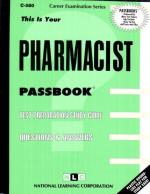|
This section contains 294 words (approx. 1 page at 300 words per page) |
 A pharmacist must be able to measure dosage amounts correctly for patients so that someone does not receive too little or too much of the prescribed medicine.
A pharmacist must be able to measure dosage amounts correctly for patients so that someone does not receive too little or too much of the prescribed medicine.
A pharmacist dispenses drugs prescribed by doctors and health practitioners, and gives information to patients about medicines. Additionally, pharmacists advise physicians on the selection, dosages, interactions, and side effects of drugs. Pharmacists understand the use, composition, and effects of drugs. In a hospital or clinic, they may also make sterile solutions and help doctors and nurses plan and monitor drug regimens. In home health-care settings, they monitor drug therapies and prepare infusions, or solutions that are injected into patients. Many pharmacists specialize in specific drug therapy areas, such as psychiatric disorders or intravenous nutrition.
A pharmacist must have a solid grounding in mathematics. Some of the math is basic and includes fractions, decimals, and percentages. Pharmacists have to understand the metric system and convert measurements such as ounces into their metric equivalents. To read and understand pharmacological research studies, they also must have a working knowledge of algebra, calculus, and especially statistics.
Statistics is a crucial discipline for pharmacists. To measure the effectiveness of drugs, researchers and drug companies use statistical concepts such as population samples, significance levels, statistical errors, statistical power, and mean, standard deviation, and variance. For example, a pharmacist needs to be able to interpret a statement such as this: "The difference in outcomes between drug X and drug Y was significant with p 0.05." This means that the probability of observing this difference in outcomes would be less than 5 percent if X were no better than Y.
See Also
Measurement, Metric System Of; Statistical Analysis.
Bibliography
Dosage Calculations Made Incredibly Easy. Los Angeles: Springhouse Publishing, 1998.
Gray, Deborah C. Calculate with Confidence. St. Louis: Mosby, 1998.
|
This section contains 294 words (approx. 1 page at 300 words per page) |


